In this blog, medical student Maria Izmirlieva describes her ethical elective working with the Paediatric Cancer Partnership in Kampala.
“For my elective I joined the Paediatric Cancer Partnership at the Uganda Cancer Institute. The aim of the partnership is to improve care of children with cancer in the East African region and raise the survival rate from 30% to the WHO target of 60%.
The Uganda Cancer Institute (UCI) covers a large geographical area, treating children from Uganda as well as neighbouring countries including DRC and South Sudan. For many, it provides the only hope of treatment in the region. It is also critical in spearheading awareness about cancer and encouraging early detection and treatment. There is still a long way to go, but through this partnership, inroads are being made that will have a knock-on effect on cancer care of children in the whole region.
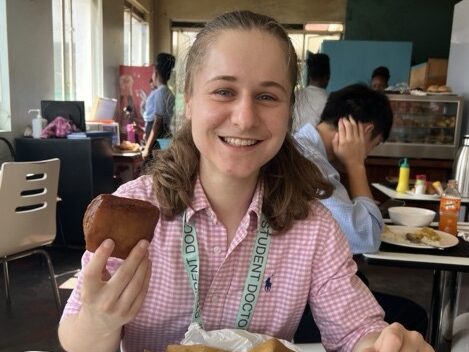
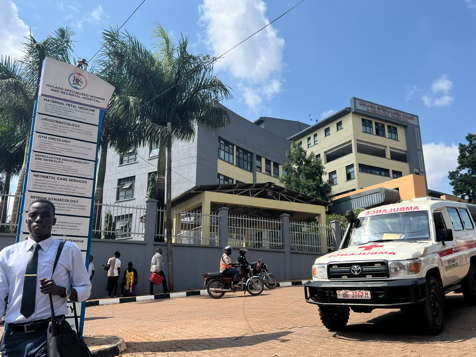
Taking time to review and assess
With my fellow student Tads, we worked on a Tumour Board project and a pathology audit. Tumour Board meetings are an opportunity for multidisciplinary healthcare teams to discuss cases, which can improve patient outcomes. In preparation, we attended tumour boards at both Addenbrooke’s Hospital and UCI (virtually) prior to the elective. In the first week of our visit, we then conducted a survey to determine how staff felt about these meetings and if there was any scope for changing them, as well as eight semi-structured interviews covering all areas of the multidisciplinary team. We presented these results and answered questions from the team, before setting up a referral and reporting form based on the feedback.
For the pathology audit we went through paper records for patients who had histology performed at UCI. We developed a spreadsheet and coded the data to determine key things like turnaround times, immunohistochemistry, and which cancers were most commonly diagnosed or missed. This will inform future practice at the UCI, including which weaknesses to target and what immunohistochemistry to order in.
The staff UCI are very stretched, so our support was valuable in these time-consuming endeavours. We also brought technical expertise in coding and data analysis which was helpful for the projects and setting up the referral/report form.
We hope that these projects will make tumour boards more efficient, so children who can most benefit from discussion by a multidisciplinary team are prioritised, and more cases are discussed. Through the pathology project, UCI staff will also have a better idea of where weaknesses lie in histopathology processing pathways so these can be addressed in the future, and which immunohistochemistry to prioritise.
Ultimately these measures, though small, aim to improve care of children with paediatric oncology in the region, and hopefully improve outcomes.
Professionally I learned a lot about clinical communication skills from the fantastic paediatricians on this elective – their ability to strike a balance between engaging their patients, while remaining serious and explaining diagnoses to the parents has been inspiring.
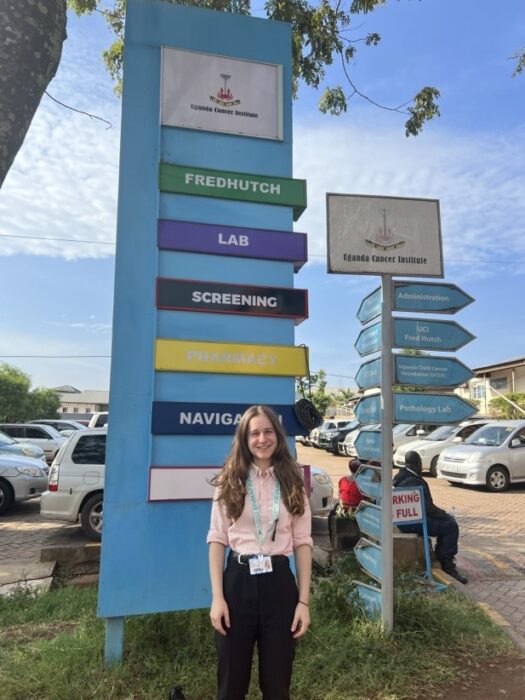
Challenges and rewards
The most challenging part of the visit was attending the paediatric oncology clinics. The doctors were fantastic and inspirational – they were super knowledgeable, and I learned a lot. The cases were very difficult to watch though because the patients presented at a much later stage than in the UK. There were a lot of children who were palliative which is something I had never witnessed before.
The most rewarding part was getting to know the team and working together based on their feedback to try and provide something useful from our projects.
Personal and professional development
I have become much more proactive because of the visit. For example, coming up with ideas on how to determine the successes of the current tumour board meetings, taking the initiative on learning how to perform semi-structured interviews and analyse this qualitative data, and how to use SNOMED coding. I have also improved my teamwork massively (both with my project partner Tads) and the team at UCI.
Professionally I learned a lot about clinical communication skills from the fantastic paediatricians on this elective – their ability to strike a balance between engaging their patients, while remaining serious and explaining diagnoses to the parents has been inspiring. I have also become much more confident as a researcher and in collaborating with new teams. I feel much more confident in working within the team and managing my time.
On an individual level, my experiences at UCI have shaped my attitude on sustainability, and resource allocation. In Uganda, there was reduced usage of single-use plastics and a greater adoption of reusing equipment. Given the seriousness of climate change, and the significant contribution from healthcare, this could inspire more sustainable practices within the NHS. Additionally, at UCI, resources were scarce which meant there was a greater need for prioritisation.
I am keen to continue my involvement at UCI. Following our pathology presentation and introduction of referral form, I would like to audit the tumour board referral/ report form after 6-12 months and see how much of an impact this has had.
My favourite experience on the entire trip was going to visit Sipi Falls near the Kenyan border of Uganda for a weekend trip. It was incredibly beautiful, and we got to do some hiking in the tropical forests there. It was a great way to get to know the other Cambridge medics who had gone to Uganda with CGHP’s support, and served as an important support network for me during the difficult times at the UCI.
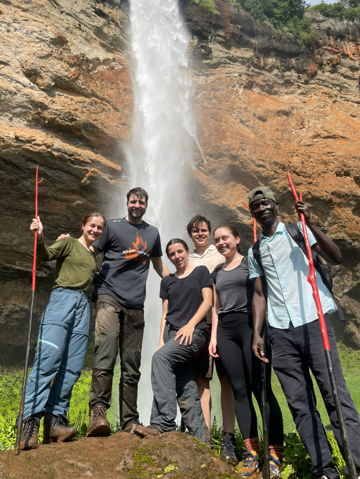
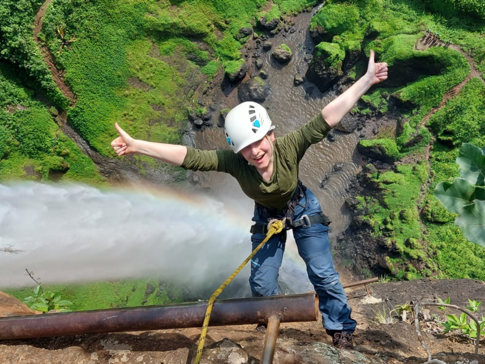
Find out more about ethical elective opportunities with CGHP’s partnership programmes, or contact us at info@cghp.org.uk
Return to blogs
